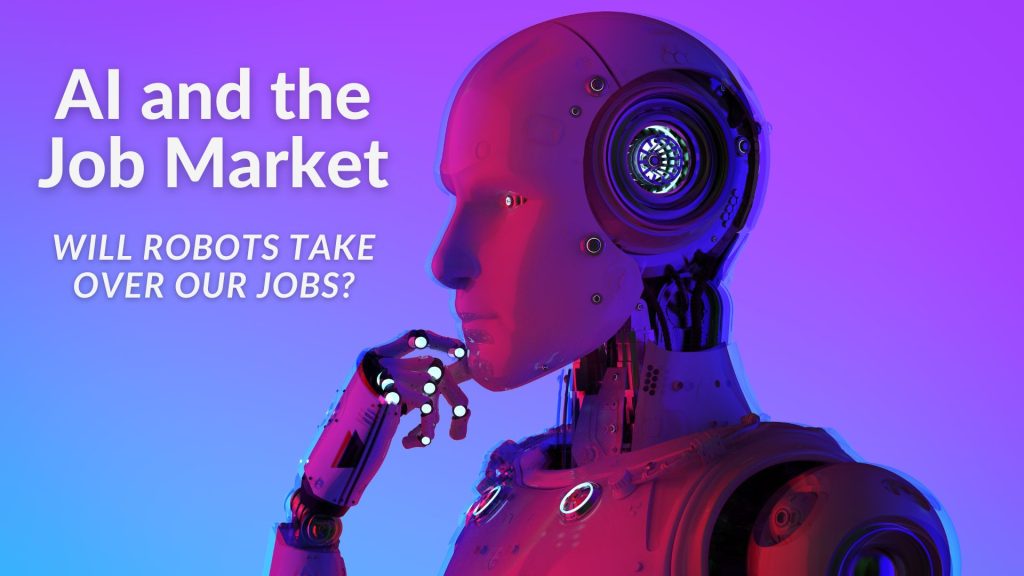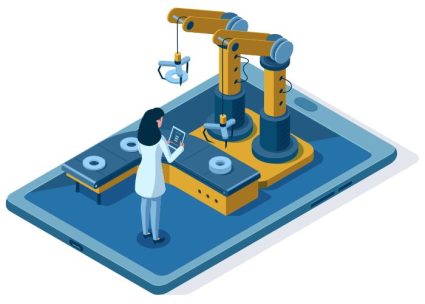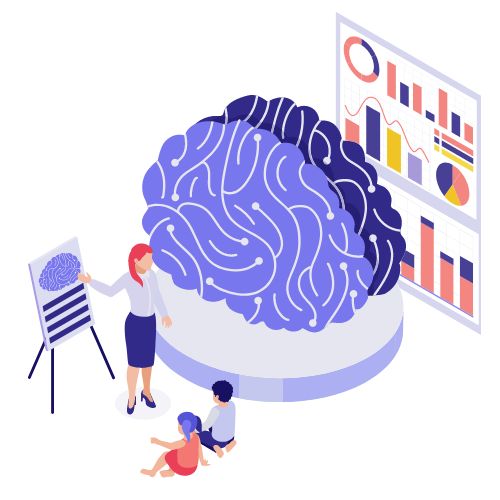AI and the Job Market: Will Robots Take Over Our Jobs?

As technology continues to advance, many people are becoming increasingly concerned about the future of AI and the job market. We’ll explore the impact of AI on the job market and discuss which jobs are most at risk. We will also provide insights on how to lessen the impact of AI on your future career.
The Current State of AI and the Job Market
According to a study conducted by BYU sociology professor Eric Dahlin, robots are not replacing humans at the rate most people believe. The research found that only 14% of workers reported that their jobs had been replaced by a robot.
However, those who experienced job displacement due to automation tended to exaggerate the impact of robots on the job market by about three times.
This suggests that while AI is indeed influencing various industries, the threat of robots taking over jobs has been greatly exaggerated. In fact, many workplaces are integrating both employees and robots in ways that generate more value for human labor.
Jobs Most at Risk
Although AI may not be taking over jobs as quickly as some might think, certain professions are at a higher risk of being replaced by automation. These jobs typically involve repetitive tasks and routine activities that can be easily automated. Some examples include:

- Manufacturing and assembly line workers
- Data entry clerks
- Retail cashiers
- Telemarketers
- Customer service representatives
It is important to note that while these jobs are at risk, the integration of AI and automation can also lead to the creation of new jobs and industries.
Tradespeople: Hard to Replace
In contrast to the jobs mentioned above, tradespeople such as plumbers, electricians, and carpenters are less likely to be replaced by AI. These professions require a high level of manual dexterity, problem-solving skills, and adaptability, which are difficult for robots to replicate. Furthermore, tradespeople often need to work in unique environments and tackle different challenges, making it harder for AI to handle these tasks effectively.
The Impact of Automation on the Job Market
Automation can have both positive and negative effects on the job market. On the one hand, AI can lead to improved efficiency and productivity, resulting in cost savings for businesses and potentially lower prices for consumers. Additionally, automation can free up human workers to focus on more complex and creative tasks that require human intuition and critical thinking.
On the other hand, the integration of AI can also lead to job displacement, particularly for those in industries with repetitive tasks. This can result in increased income inequality and a potential rise in unemployment if the job market does not adapt quickly enough.
How Can You Lessen the Impact of AI on Your Future Career?
As AI continues to influence the job market, it is essential to take proactive steps to secure your future career. Here are some strategies to help you adapt to the changing landscape:

- Develop transferable skills: Focus on building skills that are valuable across various industries, such as communication, problem-solving, and critical thinking. These skills are less likely to be replaced by AI and can make you more attractive to potential employers.
- Embrace lifelong learning: Stay updated on industry trends and technological advancements to remain relevant in your field. Consider taking courses or obtaining certifications in areas related to your profession to demonstrate your dedication to continuous improvement.
- Cultivate human-centric skills: As AI takes over more routine tasks, the demand for uniquely human skills such as empathy, creativity, and emotional intelligence will likely increase. Develop these abilities to set yourself apart in the job market.
- Consider careers in AI-related fields: As AI continues to advance, there will be a growing need for professionals skilled in the development, implementation, and management of AI technologies. Pursuing a career in AI-related fields can help ensure long-term job security.
- Stay adaptable: Be open to change and willing to adapt to new ways of working. As AI reshapes the job market, flexibility and adaptability will be crucial to staying ahead.
Conclusion
While AI and automation are undoubtedly changing the job market, the threat of robots taking over jobs is not as imminent as some might fear. By focusing on developing transferable skills, embracing lifelong learning, and cultivating human-centric abilities, individuals can better prepare for the future and lessen the impact of AI on their careers. Ultimately, the key to navigating the ever-evolving landscape of AI and the job market is to stay informed, adaptable, and proactive in your career development.

Related Artificial Intelligence
10 Free Face Recognition Software
5 Steps To Becoming A Machine Learning Engineer
100 Applications of AI and Machine Learning
20 AI Websites That Can Transform Your Life
10 Virtual Girlfriend Apps to Build a Relationship
AI Programming for Beginners: A Step-by-Step Guide to Get You Started
10 Revolutionary Applications of AI in Household Settings
The Ultimate Data Science vs Machine Learning Guide